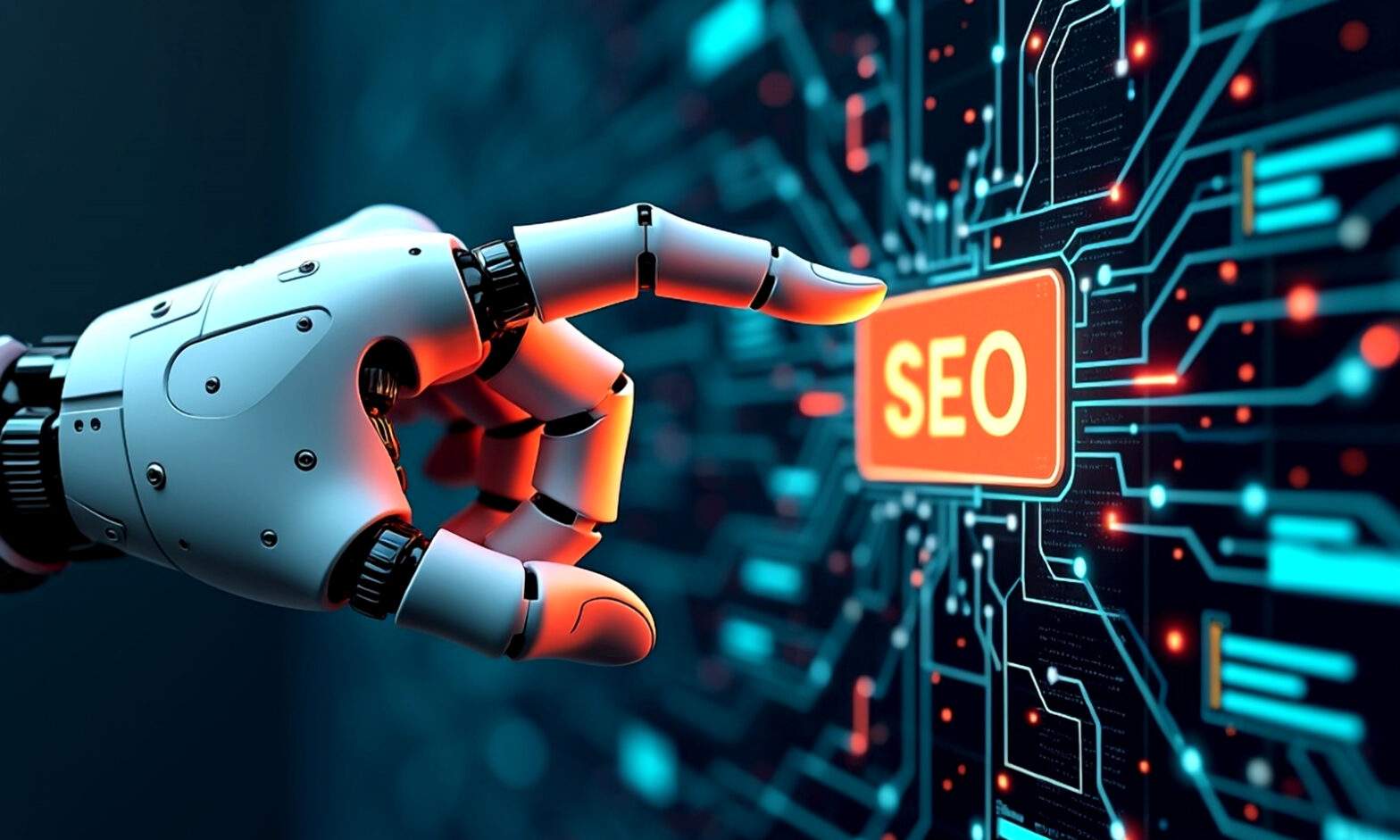Introduction:
In today’s fast-paced digital world, content is king. But how fast can we create high-quality content that ranks well on search engines? This question has sparked a big debate: Can AI write SEO-optimized content faster than human writers?
You’ve probably heard a lot about AI, but can it truly match the creativity and skills of a human writer? Or even beat them when it comes to speed? In this article, we’ll explore this exciting topic. We’ll dive into how AI works, how it compares to human writers, and what this means for the future of SEO content creation. Stick with us, and let’s uncover whether AI can create SEO content 3x faster than humans!
Understanding the Role of AI in Content Writing
AI is changing the way we approach content writing. But how does it work? At its core, AI uses advanced technology to process and analyze large amounts of data. By doing this, it can understand patterns, language, and even what makes content engaging.
When it comes to writing, AI tools can generate articles, blogs, and even social media posts based on a set of instructions. These tools use algorithms that focus on SEO rules, such as keyword placement, readability, and proper formatting. The result? AI can quickly create content that is optimized for search engines.
What’s even more impressive is that AI doesn’t need rest. It works 24/7, producing content without the fatigue that human writers might experience. This allows AI to produce large amounts of content in a short time.

How AI Generates SEO-Optimized Content
AI doesn’t just write any content—it creates content that is designed to perform well on search engines. But how does it do this?
AI tools are programmed to follow SEO best practices. They analyze what search engines like Google look for when ranking content. This includes things like keywords, headlines, and structure.
-
Keyword Research
AI can identify the best keywords to target by analyzing current trends and what people are searching for. It uses this data to suggest keywords that should be included in the content to improve its ranking.
-
Content Structure
AI knows that search engines prefer well-organized content. It helps structure the content with headings, sub-headings, and bullet points to make it easier for readers (and search engines) to understand.
-
Readability
AI also focuses on readability. It ensures that sentences are short, clear, and easy to follow, which is important for both users and search engines.
-
Meta Tags and Descriptions
In addition to the article itself, AI generates Meta descriptions and title tags that are SEO-friendly. These are crucial for improving click-through rates from search engine results pages.
By following these SEO rules, AI creates content that has a better chance of ranking higher on search engines and attracting more readers.

The Speed Factor: AI vs. Human Writers
When it comes to speed, AI has a clear advantage. Human writers need time to research, think, and craft each piece of content. This can take hours or even days for complex topics. But AI? It works much faster.
AI can generate a full-length article in just a few minutes. Once the input is given, it uses algorithms to analyze data and produce a draft in record time. This allows businesses to publish content more often, which can be crucial in today’s fast-moving digital world.
On the other hand, human writers bring creativity, originality, and nuance to the table—qualities that AI can struggle with. While AI can quickly produce content, it might lack the personal touch and deep understanding of the topic that a human writer can provide.
But when it comes to sheer speed and volume, AI is hard to beat. It’s ideal for tasks like writing product descriptions, blog posts, or general content that doesn’t require much creative input.
What Makes AI Content Creation 3x Faster?
So, what exactly makes AI content creation three times faster than human writers? Let’s break it down.
-
Instant Research
AI tools can quickly gather information from various sources in a matter of seconds. Unlike human writers, who need to search, read, and analyze content, AI can pull relevant data right away, saving hours of research time.
-
No Writer’s Block
Humans often face writer’s block, where ideas or the flow of content get stuck. AI doesn’t experience this. It simply follows instructions and generates content without pauses or delays. This means there’s no need to wait for inspiration to strike!
-
Automatic Structure
AI automatically organizes content, making sure it’s clear and structured. It creates headings, sub-headings, and bullet points, which can be a time-consuming task for human writers. This automatic formatting speeds up the whole process.
-
24/7 Availability
Unlike humans, who need breaks, sleep, or time off, AI works around the clock. It doesn’t get tired or distracted, which means it can write content non-stop without slowing down.
By combining these features, AI can create content much faster than humans, helping businesses keep up with the demand for fresh, SEO-optimized material.
Can AI Match the Creativity of Human Writers in SEO?
AI is fast and efficient, but when it comes to creativity, can it truly match a human writer? The answer is a bit complicated.
-
AI’s Strengths
AI can analyze large amounts of data and spot patterns, which helps it generate content that is clear, structured, and optimized for SEO. It excels at producing straightforward, factual content like how-to guides, product descriptions, and news articles.
-
The Human Touch
However, creativity involves more than just facts. Human writers can bring emotion, personal experience, and storytelling to their work. They can craft unique angles, understand complex nuances, and create content that feels personal and relatable—something AI struggles with.
-
AI’s Growing Creativity
That said, AI is improving. Some advanced AI tools are now capable of mimicking creative writing to an extent. They can suggest catchy headlines, generate engaging introductions, or even create poems. However, these outputs still lack the deep originality and emotional connection that human writers naturally bring.
In short, while AI can create well-optimized content quickly, it’s the human touch that makes content truly creative and engaging. AI and human writers each have their strengths, and together, they can produce even better results.

The Pros and Cons of AI-Generated SEO Content
AI-generated content brings many benefits, but it also has its drawbacks. Let’s explore both sides.
Pros of AI-Generated SEO Content
-
Speed and Efficiency
AI can create content much faster than humans. It can generate articles in minutes, making it ideal for businesses that need to produce large volumes of content regularly.
-
Cost-Effective
Since AI tools are quick and efficient, they can reduce the need for hiring multiple writers. This can save businesses a significant amount of money in content creation.
-
SEO Optimization
AI follows SEO rules closely, ensuring that content is optimized for search engines. It uses keywords, proper formatting, and readability techniques to help content rank higher in search results.
-
Consistency
AI can produce consistent content without variations in tone or style, which can be useful for maintaining a steady flow of content, especially for websites that require frequent updates
Cons of AI-Generated SEO Content
-
Lack of Creativity
AI might struggle with creating unique and engaging content. It can only work within the patterns and data it has been trained on, which means it might miss the creative spark that a human writer can bring.
- Limited Understanding of Nuance
AI can generate content that is factually accurate but may miss the subtle details and deeper meaning that a human writer can provide. This could lead to content that feels generic or lacks depth.
-
Risk of Plagiarism
While AI tools are good at generating original content, there is always a risk that the output could be similar to existing content online. This could result in unintentional plagiarism, which can hurt a website’s reputation and SEO performance.
-
Dependence on Data
AI relies heavily on data. If the data it has access to is outdated or inaccurate, the content it produces may be flawed or irrelevant.
The Human Touch: Why Some Prefer Human Writers for SEO
While AI can generate fast and SEO-friendly content, there are reasons why many still prefer human writers for SEO. Let’s dive into why the human touch is important in content creation.
-
Creativity and Unique Perspectives
Human writers bring creativity to the table. They can think outside the box and offer fresh, unique ideas that AI may struggle to generate. This creativity is especially important for writing engaging blog posts, compelling stories, or thought-provoking articles.
-
Emotional Connection
Humans are naturally able to connect with other people on an emotional level. A well-written piece by a human can resonate with readers, creating a deeper bond and encouraging them to share or comment. This emotional connection is harder for AI to replicate.
-
Understanding Complex Topics
When it comes to complex or niche subjects, human writers can dig deeper and provide expert insights that AI might miss. Humans can interpret subtle nuances, making sure the content is accurate and thorough.
-
Tailored Tone and Style
Human writers can adapt their tone and style to match a brand’s voice or audience. Whether it’s casual, formal, or humorous, a human writer can adjust the content to better fit the needs of the business and its target audience.
-
Content with Personality
Finally, human writers can inject personality into their work. This can make the content feel more authentic and relatable. AI, while efficient, can come across as robotic and impersonal.

How AI Content Impacts SEO Rankings
AI-generated content is becoming a big part of SEO strategies, but how does it impact search engine rankings? Let’s take a closer look.
-
Keyword Optimization
One of the main ways AI helps with SEO rankings is through keyword optimization. AI can analyze search trends and identify the best keywords to include in the content. By doing this, AI ensures that the content is more likely to show up in search results for those keywords.
-
Improved Readability
Search engines like Google prioritize content that is easy to read and understand. AI-generated content is typically structured well, with short paragraphs, bullet points, and headings. This makes it more reader-friendly and increases its chances of ranking higher.
-
Consistency and Fresh Content
AI tools can quickly generate large volumes of content. This allows businesses to update their websites regularly with fresh, SEO-optimized articles, which is important for maintaining or improving search rankings. Google rewards websites that consistently add new, relevant content.
-
Quality Control
AI can help reduce common SEO mistakes, such as over-stuffing keywords or poor formatting. By following best SEO practices, AI-generated content is often more likely to meet the technical requirements that help improve rankings.
-
Risk of Low-Quality Content
While AI is efficient, it’s not always perfect. Sometimes, the content might be well-optimized but lack quality. If the content isn’t engaging, accurate, or well-written, it could harm the website’s SEO rankings. Search engines aim to provide users with the best content, so poorly written AI content could be penalized.
Is AI the Future of SEO Content Writing?
AI is already making a big impact on SEO content writing, but will it completely take over in the future? While AI has proven to be a useful tool, there are several factors to consider when answering this question.
-
AI’s Growing Capabilities
AI tools are getting smarter every day. They are becoming better at understanding language, context, and even creating content that feels more natural. As these tools improve, they may take on more tasks, including content creation for complex topics.
-
Human Writers Still Have the Edge
While AI is fast and efficient, human writers still bring creativity, emotion, and deep understanding to the table. AI can follow patterns and generate content based on data, but humans excel at crafting unique stories and understanding complex emotions—qualities AI can’t fully replicate.
-
The Future: A Partnership
Instead of AI fully replacing human writers, the future of SEO content writing may involve a partnership. AI can handle the bulk of SEO tasks, such as keyword research, structure, and generating initial drafts, while human writers can refine the content, add creativity, and ensure it resonates with readers.
-
AI for Time-Saving and Scalability
AI is likely to become even more popular for businesses that need to produce large volumes of content quickly. It offers a cost-effective solution for creating SEO-friendly articles, product descriptions, and more. However, for businesses that prioritize high-quality, unique content, human writers will remain essential.
-
The Role of AI in SEO Content Writing
In the end, AI will likely be a key tool in the SEO content writing process. It’s not about AI replacing writers, but about AI helping writers to be more efficient and focused on the creative aspects of content.
AI Tools You Can Use for SEO-Optimized Content
AI tools are incredibly helpful when it comes to creating SEO-optimized content. Here are some of the top AI tools you can use to improve your content creation process:
-
Jasper (formerly Jarvis)
Jasper is one of the most popular AI writing assistants. It can help you generate blog posts, social media content, and even ad copy. Jasper uses powerful language models to create high-quality, SEO-optimized content, making it a great choice for businesses looking to save time while improving their content strategy.
-
Surfer SEO
Surfer SEO is a content optimization tool that uses AI to analyze top-ranking pages on search engines. It provides recommendations on keyword density, backlinks, and content structure to help you optimize your content for SEO. This tool can be a great asset for writers who want to create content that ranks higher on Google.
-
Copy.ai
Copy.ai is another AI tool that helps create content for websites, blogs, and more. It focuses on generating catchy headlines, product descriptions, and engaging content that’s SEO-friendly. It’s user-friendly and perfect for businesses that need content quickly.
-
Writesonic
Writesonic is an AI-powered content generation tool that focuses on SEO. It can help you write blog posts, articles, and even landing page content. The tool uses machine learning to generate SEO-optimized copy and provides tips to improve keyword usage and readability.
-
Frase.io
Frase.io combines AI and SEO research to help you create content that ranks. It helps with keyword research, content briefs, and writing SEO-friendly content. It’s especially helpful for creating in-depth articles that cover all aspects of a topic and rank well in search engines.
-
QuillBot
QuillBot is an AI-powered tool designed to help with paraphrasing, summarizing, and rewording content. It’s ideal for improving readability and creating content that is SEO-optimized without sounding repetitive or redundant.

Conclusion: Will AI Replace Human Writers in SEO Content Creation?
AI is undoubtedly changing the world of SEO content creation. It’s fast, efficient, and can generate SEO-optimized content with ease. But will it replace human writers entirely? The answer is no—not completely.
While AI tools are excellent for tasks like keyword optimization, generating basic content, and improving efficiency, they still have limitations when it comes to creativity, emotional connection, and understanding complex topics. Human writers bring a unique touch that AI simply can’t replicate, such as original ideas, storytelling, and personalized tone.
The future of SEO content creation will likely involve a balance between AI and human writers. AI can handle repetitive tasks and help businesses scale content production quickly, while human writers can focus on crafting content that is engaging, creative, and deeply insightful.
Ultimately, AI is a powerful tool, but it’s the combination of AI and human creativity that will lead to the best SEO content. Together, they can create high-quality, SEO-optimized content that ranks well and connects with readers on a deeper level.
If you found this article helpful, don’t forget to follow us on Facebook for more tips, insights, and updates on SEO and content writing! We’d love to hear your thoughts and keep you updated on the latest trends in digital marketing.
For More Information Visit Our Facebook Page.





